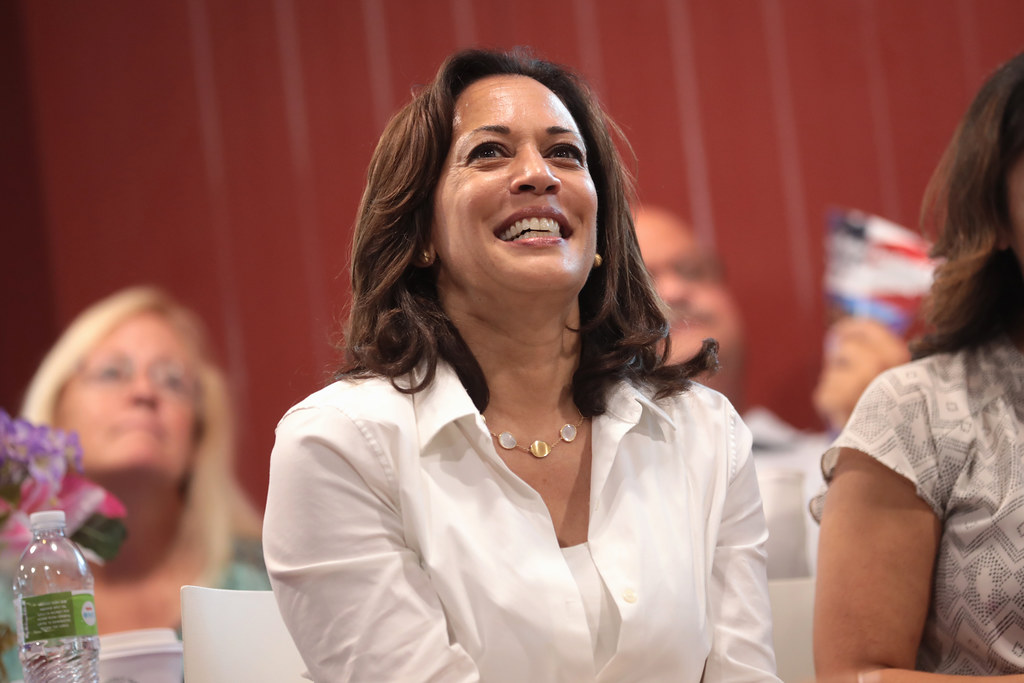The VP’s VP Pick
September 16, 2020
A couple of weeks ago, Joe Biden announced that he was choosing Kamala Harris, the junior Senator from California and former presidential candidate, as his Vice President for the 2020 Democratic Ticket. Immediately after the announcement, political social media devolved into the mess that most of us know it as. Conservatives decried Harris as too liberal, moderates giggled with anticipation as they imagined Harris roasting Trump, and leftists sat there in shock as Joe Biden chose a prosecutor to be his VP amidst nationwide protests for criminal justice reform. Anyway, it’s time to take a short and definitely incomplete look into Kamala Harris’ past.
Kamala Harris seems to be, as Vox aptly describes, “filled with contradictions.” On the one hand, she implied that Joe Biden was racist by mentioning his opposition to desegregation and by saying that he worked closely with segregationists, yet on the other hand, she’s his vice president and has heavily endorsed him for the presidency. Of course, the first statement was implied on the campaign trail in an effort to win, but one can’t take back their words, especially if those words were said as millions of people watched. Democrats may defend that choice by saying that this shows Biden is able to take criticism well and make peace with people he once considered adversaries, but they have to know that those clips and quotes will be turned into premium Republican cannon-fodder for the rest of the election.
Kamala Harris’ prosecutorial record leaves a lot of questions as well. Why choose a prosecutor and former DA amidst a nationwide reckoning with our broken police system? Kamala Harris is, quite frankly, the prime example for leftists to use to justify a complete overhaul of the police system. While claiming to be a “progressive prosecutor,” she still argued for the death penalty in court, protected state officials indicted for misconduct, and fought against releasing non-violent prisoners. She even stated that she was against the idea of statewide body cameras for police officers. Essentially, for most of the time, critics say she fought to maintain the status quo rather than fight for sweeping reforms. However, her proponents point out that as DA of San Francisco, Harris instituted the “Back on Track” program, which allowed first-time drug offenders to finish high school and get a job. Not only that, but she made sure that California’s “third strike” law wasn’t enacted as harshly as it normally would have been. As AG, she launched Open Justice, an initiative that provides data of civilian deaths in officer custody with details about the victim’s background. Of course, it also provided data on officers who were assaulted or killed on the job.
As you can see, this is a confusing record. It seems that as DA, Kamala Harris was the progressive prosecutor that her voters wanted her to be, but when she was elected into her Attorney General position, Harris didn’t shake up the house. Perhaps the fear of angering voters pushed her towards the safe center, but even after a crushing victory in her 2014 AG election, Senator Harris still refused to do anything drastic. Her supporters may say that she was already planning for her 2016 Senatorial run and didn’t want to leave something unfinished to be botched by her successor. Of course, that meant she let ambition get in the way of helping those in need, but that seems to be swept under the rug. There’s no way of knowing yet whether Kamala Harris has helped or hurt Biden as the VP candidate. But hopefully this article shines a light into who she was as a politician and can show us what she might be like if she’s put in a real position of power.
